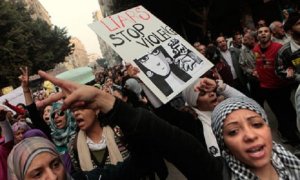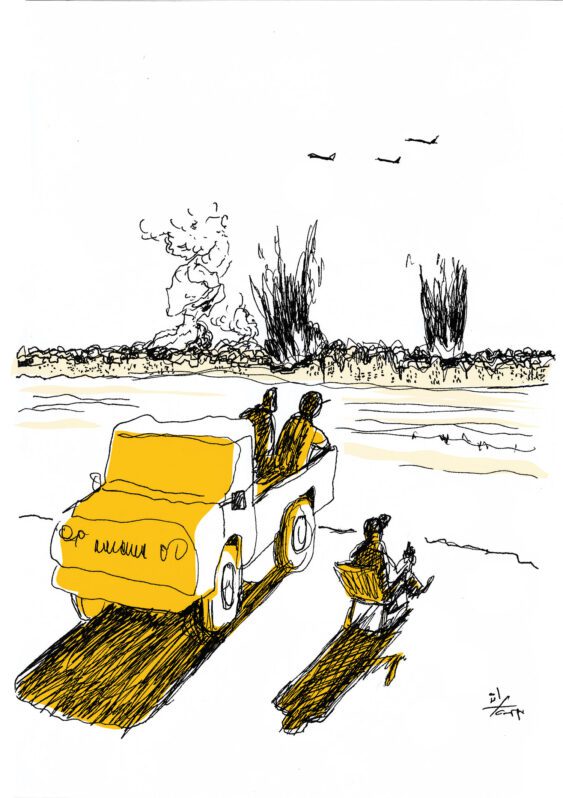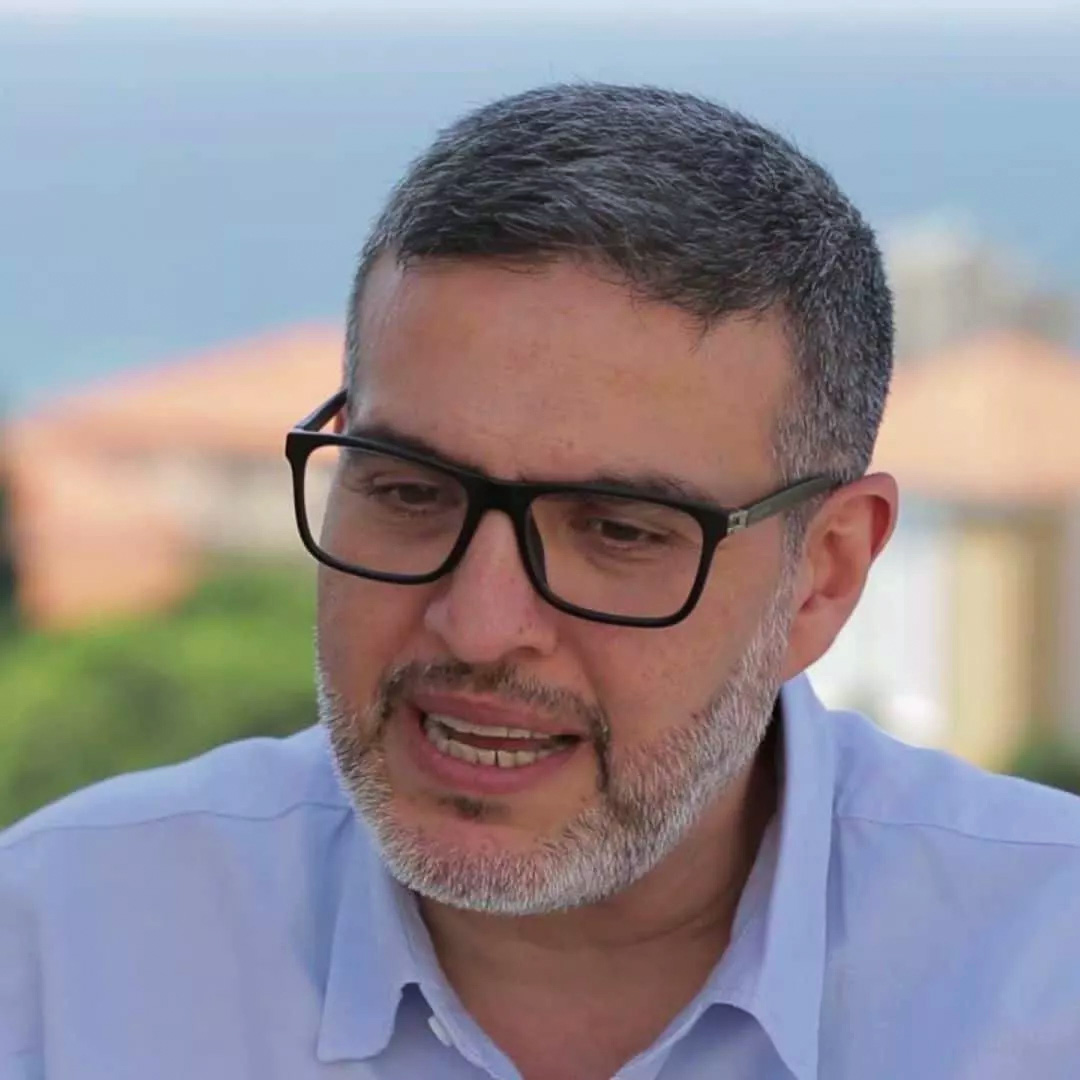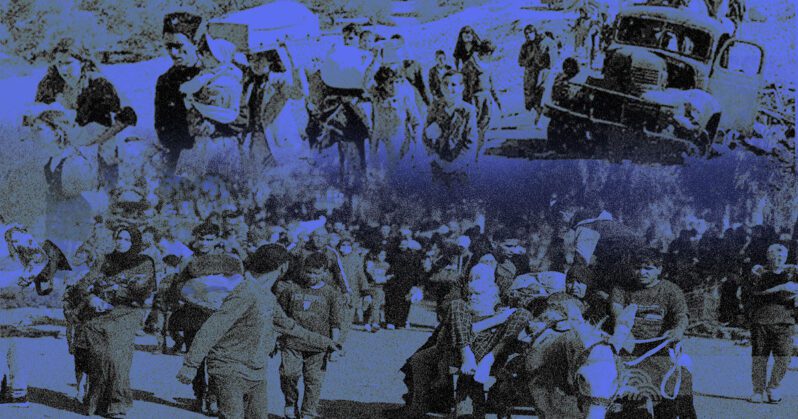Women, Minorities and Marginalized Groups in Egypt (2011-2013) (III): Presidency of Mohammed Morsi

For the author’s introductory note on this series and its phases of study, refer to the study of the first phase.
On June 30, 2012, Mohammed Morsi was elected president of Egypt. He was the first member of the Muslim Brotherhood (MB) –and the first Islamist– to assume power in Egypt. During his rule, which lasted until July 3, 2013, Constituent Assembly (CA) sessions took place, a new government was formed, a rough draft of the 2012 Constitution was published, and a referendum over the latter and its ratification was held.
A. An Abundance of Protests
1. Human Rights Demands
Based on the discussions that took place in the former People’s Assembly, women’s rights groups organized a march to the Heliopolis (Ittihadiya) Presidential Palace to present their written demands to Morsi.[1] Such demands included preserving their rights in personal status laws, granting their children citizenship, combating sexual harassment and achieving equality between men and women.
One of the most prominent protest marches was organized on International Women’s Day on March 8, 2013, in the Cairo governorate under the slogan “The Voice of Women is Revolution”. Participants raised slogans denouncing sexual harassment and attacks against women. They also raised pictures of Egyptian women who contributed to Egypt’s history as proof of women’s standing and capabilities. Women continued to take part in various demonstrations and protests concerning general issues as well.
Meanwhile, people with disabilities organized and took part in an increasing number of protests and demonstrations. One such protest took place in front of the Ittihadiya Palace in October 2012, to demand their right to work. Egyptian law grants them a quota of 5% among any workforce. Additional demands included their right to housing and to the receipt of stipends by those of them unable to work. Authorities reacted to this protest with both indifference and violence. Ignoring it at first, security forces later dispersed it forcibly. This only led the protesters to add to their list of demands. They also filed a police statement accusing the president of neglecting to meet these demands. After ten days of protest, Morsi met with them and promised to solve their problems. The protesters considered this a kind of “sedative” measure and demanded formal decisions. They later disbanded the protest, vowing to resume if their demands are not met.
On a different front, the National Council of Care for Families of the Revolution’s Martyrs and Injured (NCCFRMI) mistreated the families of martyrs and the injured and ignored their demands. Demonstrations and protests were thus organized to demand their rights, including state-funded treatment and stipends.
As a result, the Secretary-General of the NCCFRMI tendered his resignation in September 2012, and a new council was formed.[2] In November 2012, the president issued a decision to place some of the injured of the revolution on a payroll, with special stipends equivalent to those offered to the families of martyrs.[3]
Nevertheless, the injured of the revolution continued to voice their demands. They turned to the State Council, demanding that the government be forced to allocate state funds for their treatment. On April 2, 2013, the Administrative Judicial Court issued a decision requiring the state to fund the treatment of the injured of the revolution should their condition require treatment abroad. A string of additional rulings followed, requiring the state to fund the treatment of the injured and thereby turning the state’s obligations into an established legal principle.
2. Human Rights Violations: A Main Reason for Growing Protest Movements
This period saw an increase in sexual harassment with systematic group sexual harassment and rape taking place in public squares. Such incidents were meant to deter women from taking part in demonstrations that opposed MB rule.[4]
There was also a shift away from the kinds of direct violations committed by security forces under the Supreme Council of the Armed Forces (SCAF) rule. Certain individuals with no official designation, were now being employed to carry out these systematic group sexual assaults or rapes. This went as far as having the “sexual assailants” form a circle around their female victim to trap her inside before assaulting her, without anyone being able to stop them – a strategy that became known as the “circle of hell”.
A large number of youth initiatives were launched in reaction to the spread of this phenomenon. Participants formed teams to protect women from harassment and rape during protests, in addition to organizing gatherings, demonstrations and human chains. In order to confront the discourse of fundamentalist movements, they worked to raise awareness about the role of women in society. They also raised awareness among women of their rights and of the laws criminalizing sexual harassment.
Working to confront sexual harassment, such initiatives trained young people to save women from the “circle of hell” or from street harassment, and trained women to protect themselves. Their emergence in such large numbers reflects a general feeling of the lack of protection afforded to women and the state’s failure to do its job.
Copts also suffered during this phase. They had been calling for holding SCAF accountable for the crimes committed during the “Maspero massacre”. When Morsi assumed the reins of power, one of his earliest decisions was to dissolve SCAF and form a new council. Some reacted to this with a great deal of enthusiasm, thinking that it would represent the first step towards achieving justice. However, the president bestowed honors on a number of SCAF members, turning a blind eye to the crimes they committed during the transitional period.[5] Many, including Copts, considered that Morsi had contributed to squandering their right to justice.
The extent to which the state could guarantee the freedom to practice religious rites also came under the spotlight. While no law was passed to regulate the building of houses of worship, various problems arose concerning Egyptian churches. In one instance, a group of “bearded Muslims” trespassed on land owned by the diocese of Shubra el-Kheima with the declared aim of building a mosque there. Authorities refused to investigate the incident or interrogate the trespassers.[6] Similar incidents repeatedly took place in other areas and governorates, and the state continued to deal with them merely through “informal settlements and conciliation sessions”.
In response, a number of Coptic groups organized protests and demonstrations, demanding the establishment of a secular state and a law governing houses of worship. Coptic groups also took part in protests against Morsi, especially after the Constitutional Declaration of November 2012.
In the context of the freedom to practice religious rites, sectarian incitement against Shiites increased, especially on the part of television channels with ties to political Islam, and without the state intervening in any way to ban such discourse. Increasingly inflammatory, the latter led a number of local inhabitants from the village of Zawiyat Abu Musallam of the precinct of Abu el-Namras in the Giza governorate, to attack several Shiite leaders in June 2013. During the attack, Shiites were killed then dragged along the road to the entrance of the village.
Regarding the Nubian question, the Ministry of Agriculture and Land Reclamation announced in July 2012 that Nubian lands would be sold off at a public auction, in order to set up development projects in the area south of the Aswan High Dam. In response, Nubians organized a sit-in in front of the Ministry of Agriculture and Land Reclamation, protesting the announcement and demanding to be “resettled” in their ancestral lands.
B. Economic, Social, Civil and Political Rights
Before coming to power, Morsi promised to have all of Egypt’s religious groups take part in government. He even declared his intention to appoint two vice presidents, one Copt and the other a woman. This stirred up anger and opposition from the Salafist movement. It did not happen, and Morsi ended up appointing only one vice president in August 2012. He compensated for this by forming a presidential team of 21 members –4 aides and 17 advisors– including three women and two Copts. When the government cabinet was formed, only one Coptic minister was appointed, which dismayed Copts. Meanwhile, only two women were appointed as ministers. As for the remaining minorities and marginalized groups, they were neither represented in the presidential team nor in the government.
People with disabilities faced the same difficulties they experienced during the 2011 referendum and parliamentary elections. The state paid little heed to this segment of the population and continued to address it in a patronizing manner.
Regarding the Nubians, Morsi received a delegation representing them in March 2013, heard their demands and promised a favorable response. Later that same month, the Ministry of Housing announced that the Nubians would be offered various services, including the completion of housing units and other development services. He also announced that the introduction of Nubian history to school curricula would begin to be discussed. Another announcement promised that an area of land between the Aswan reservoir and the High Dam would be distributed among the Nubians. Later, a few weeks before Morsi’s overthrow, the formation of a legal consultative body headed by the president was announced. Its task would have been to study plans to resettle the Nubians in their region, in addition to setting up a formal body for development and construction there.
In October 2012, Morsi visited Sinai to celebrate the 1973 October War victory. His visit aimed to improve relations with the local inhabitants, and to learn about their problems and demands. Attempting to resolve their land acquisition problem was also on the agenda. In 2006, the then-Prime Minister Ahmed Nazif had issued a decision banning the acquisition of land in Sinai. Under the pretext of preventing foreigners from buying the land, land use in the peninsula became restricted to the usufruct (right to benefit) system.[7] Some time after Morsi’s visit, the prime minister issued a decision to restrict the acquisition of land in Sinai to Egyptian citizens.[8] Defense Minister Abdel Fattah el-Sisi would later issue a decision to ban land acquisitions in the Sinai border strip area for national security reasons.
During this period, the worsening crisis in Syria led to rising numbers of refugees flocking to Egypt. In order to deal with their difficult situation and to meet their needs, Morsi issued a decision in September 2012 ordaining equal treatment for Syrian and Egyptian students in terms of school and college tuition.[9] Moreover, procedures put in place before the eruption of the Syrian crisis were maintained, allowing Syrian citizens entry into Egypt without visas. In February 2013, the Ministry of Foreign Affairs issued a decision to exempt Syrians from the fees required to issue Egyptian residency permits. Those decisions were consistent with the economic and social rights of Syrian refugees in Egypt.
C. The 2012 Constitution: Constitutional Marginalization
Civil society organizations worked together with the Constituent Assembly (CA) in an attempt to draft a constitution that would represent all segments of society. Regarding women’s issues, for example, the Egyptian Center for Women’s Rights (ECWR), the National Council for Women (NCW) and a coalition of women’s rights organizations sent a number of proposals and studies about the status of women in the Constitution.[10] However, some Islamist CA members raised objections to the text stating equality between men and women in rights and duties. Al-Gamaa al-Islamiyya demanded that the phrase “as consistent with the rulings of Islamic law (Sharia)” be added to this article. After prolonged discussions, the text no longer clearly mentioned equality between men and women, nor did it make any mention of women’s rights. In fact, the word “women” itself only appeared in a single article, namely, Article 10 which concerns the family.
The Constitution thus only addressed women within the framework of the family, paying no heed to their role in society – which meant addressing women from a perspective of guardianship, not citizenship. Moreover, the 2012 Constitution did not clearly criminalize discrimination on the basis of gender. Article 33 merely states that “citizens enjoy equality before the law. They have identical rights and public duties. There is no discrimination among them”.
People with disabilities were represented at CA hearings. They demanded the ratification of principles that would empower people with disabilities and help them integrate into society. They also demanded equality with other citizens without discrimination, as well as the implementation of international agreements ratified by Egypt. Yet, Article 72 of the Constitution states that “the state commits itself to providing healthcare, education, economic help, and social support for the handicapped, to providing employment opportunities for them and to improving societal perceptions of them, and to making public facilities accessible to them”, without mentioning their civil and political rights.
The biggest crisis to affect discussions of the 2012 Constitution regarding religious minorities was the one concerning Article 2. In the 1971 Constitution, the latter states that “[the] principles of Islamic law (Sharia) are the principal source of legislation”. The Salafist movement demanded that this article be amended, either by removing the term “principles” entirely or by replacing it with “rulings”. This angered both women and Copts, who felt that one of the goals of such an amendment was to allow for the ratification of further amendments that would diminish their rights in society. After much discussion, it was agreed to keep Article 2 as it was, while adding an explanatory article, Article 219, and introducing a new one, Article 3, which states that Christians and Jews could turn to their own religious laws.[11] This marked the first time an Egyptian constitution ever made such a mention.
The Constitution did not clearly criminalize discrimination on the basis of religion or creed, as made clear in Article 33 quoted above. Meanwhile, Article 43 guaranteed freedom of religion and the freedom to practice religious rites.
As for the injured of the revolution, the 2012 Constitution guaranteed their rights in Article 65 which states that “the state honors those who fell or were injured during the January 25 Revolution, during the wars, or while otherwise serving in the line of duty. It guarantees the necessary care for their families, the injured themselves, the veterans, the families of those who went missing in action during the wars and similar situations. They, their children, and their spouses have priority in employment. Details are specified by law”.
Meanwhile, the demands of the Nubians and the Sinai Bedouins were ignored in the Constitution, and none of its articles mentions any special rights they might enjoy.
This article is an edited translation from Arabic.
______________________________________________________________________________
[1] See: “2012: The Year of Women’s Great Emergence”, report published by the Egyptian Center for Women’s Rights (ECWR), January 2013.
[2] Published on the al-Shorouk website on September 26, 2012.
[3] Published on the al-Masry al-Youm website on November 22, 2012.
[4] See: Salma Khattab’s, “Sexual Harassment: from Social Phenomenon to Instrument of Political Repression”, published on the al-Shorouk website on February 6, 2013.
[5] See: “On the Oppression of Copts and the Egyptian Revolution”, published on the Revolutionary Socialists website on January 24, 2013.
[6] Statement issued by the Egyptian Initiative for Personal Rights (EIPR) on November 8, 2012.
[7] See: Hamada el-Shawadfi’s, “South Sinai Lands: Three Years of Non-Codification”, published on the al-Shorouk website on November 6, 2013.
[8] See: “Sinai Jurists Criticize the Land Acquisition Decision Ratified by Hesham Qandil”, published on the el-Watan website on October 30, 2012.
[9] See: Fahmy Howeidy’s, “The Palestinians too are Deserving”, published on the al-Shorouk website on September 8, 2012.
[10] See note 1 above, idem.
[11] See: Menna Omar’s, “Principles of Islamic Sharia Law in Article 2 of the Egyptian Constitution: The Struggle Over Their Interpretation in an Effort to End the Debate”, published on The Legal Agenda website on August 28, 2013.
Mapped through:
Articles, Egypt, Gender, Sexuality and Women Rights, Inequalities, Discrimination and Marginalisation
Related Articles



